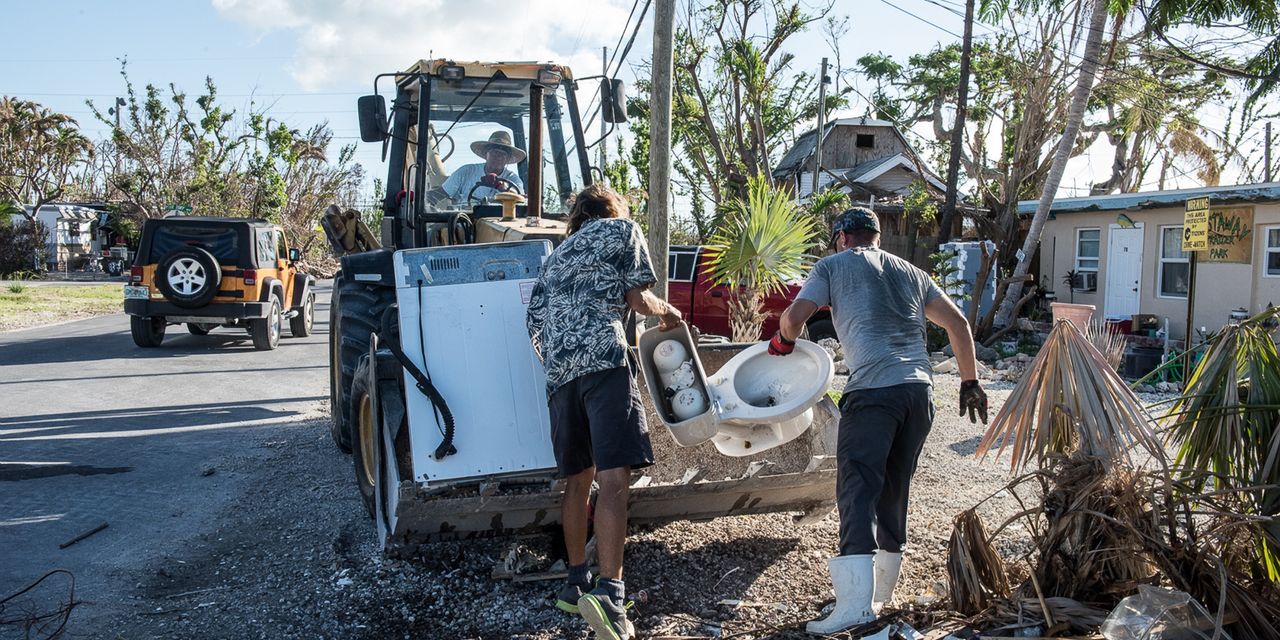
In March 2020, when Americans realized that the new coronavirus was a potentially massive and deadly threat, many rushed to their local supermarket and panic-bought toilet paper, clearing the shelves. It wasn’t logical, and people were told to stop hoarding it. But they were acting out of fear, trying to control what they could control but not really understanding what their real needs were.
The coronavirus has challenged us in ways that our society hadn’t been challenged for decades. It should not have come as a surprise, as epidemiologists have been constantly warning of such threats. But we were not prepared, either mentally or practically. Americans have grown unused to dealing with hardships. When we want something, we only have to click a link on our phone, and it is delivered to our doorstep. We complain and post bad reviews if our food delivery is a few minutes late. Psychologists have even identified a nervous disorder, “phone separation anxiety,” that people suffer from when they are parted from their phones for even short periods.
“Actively working to mitigate the damage from a disaster makes you feel more empowered and less like a helpless bystander.”
In my career in crisis management, I’ve seen how people around the world respond to disasters. After the 9/11 attacks, the 2004 South Asian tsunami and the 2010 Haitian earthquake, I worked to recover and repatriate human remains, return possessions to families and help governments and people go forward. At the start of the Covid-19 pandemic last year, my company advised local governments in the U.S. and the U.K. on how to deal with the massive spike in excess deaths.
Disastrous events like these are always stressful, but being stressed and anxious doesn’t mean you can’t be resilient. Actively working to mitigate the damage from a disaster can help to reduce stress, because it makes you feel more empowered and less like a helpless bystander. And of course, the things you do can actually help the recovery effort after the event. Look at it this way: Exercise stresses your muscles and your cardio system. You will sweat and feel stiff after the first few workouts. But it makes you fitter over time and better able to cope with future physical challenges.
Experience and preparation paid off for me in September 2017, as Hurricane Irma, a Category 5 storm, approached Key West, Fla., where my husband and I had spent two years building our home together. We didn’t freak out: We knew about the risk of hurricanes when we moved there. I had studied the maps to see which areas of Key West were prone to flooding, and we prepared our property accordingly.
We took down the fan blades and outdoor speakers, put up the storm shutters, and wrapped the tailpipes on the car so floodwater wouldn’t get in. I trimmed the trees because the wind can turn coconuts into dangerous projectiles. True, it was a pain to do all that, but it limited the damage and allowed me to have some control over a potentially catastrophic situation. I couldn’t stop the hurricane, but I didn’t have to just sit and be a passive victim as my home was battered. Even if you can’t control the event, you can control the response.
SHARE YOUR THOUGHTS
Have you had to cope with the aftermath of a disaster? Join the conversation below.
After a disaster, people’s willingness to take charge rather than waiting for help can make all the difference. In World War II, when English and German cities were bombed flat, war-hardened residents formed human chains and cleared the streets by hand, one brick at a time. That was how the World Trade Center was cleared in the very first days, bucket by bucket.
In late 1994, when I went to Haiti after the U.S. invasion to reestablish democracy there, I saw how incredibly resilient the people were. People knew how to build a working water pump out of leftover car parts because, under military rule, the country had been embargoed by the U.N. You had to be resourceful just to get by. Fast-forward to when I went back for the 2010 earthquake, when the country had become aid-dependent after 16 years of U.N. missions. This time I saw people sitting in plastic chairs outside their collapsed homes with signs that said, “Help me,” instead of picking up and clearing the roads so the aid trucks could get through.
My long experience has taught me that when a disaster strikes, you can’t wait for someone else to bail you out. You have to have some basic skills and self-reliance initially. If a grease fire breaks out in my kitchen and I have a fire extinguisher, I can probably put it out. But if I call the fire department and wait for them to arrive, my grease fire could turn into a house fire. I will still call the fire department, in case I can’t control the fire, but the first response has to be mine.
The world will always face natural disasters, pandemics and acts of terrorism. The threat is no greater today than in the past—in fact, we are in a much better situation to monitor and predict disasters than ever before. But paradoxically, too much awareness of danger can render people incapable of making informed decisions. Constant awareness of the threat can make us freeze with fear or confusion; the massive amounts of information out there can make us feel overloaded, as if drinking from a fire hose.
One thing politicians, planners and ordinary people need to remember is this: We don’t control nearly as much as we think we do. Mass fatalities and crises expose that fact like nothing else. But we also have more ability to respond than most of us realize. Don’t fight the things you can’t control. Focus on the things you can.
—Mr. Jensen is Chairman of Kenyon International Emergency Services. This essay is adapted from his new book “Personal Effects: What Recovering the Dead Teaches Me About Caring for the Living,” published this week by St. Martin’s Press.
Copyright ©2021 Dow Jones & Company, Inc. All Rights Reserved. 87990cbe856818d5eddac44c7b1cdeb8








